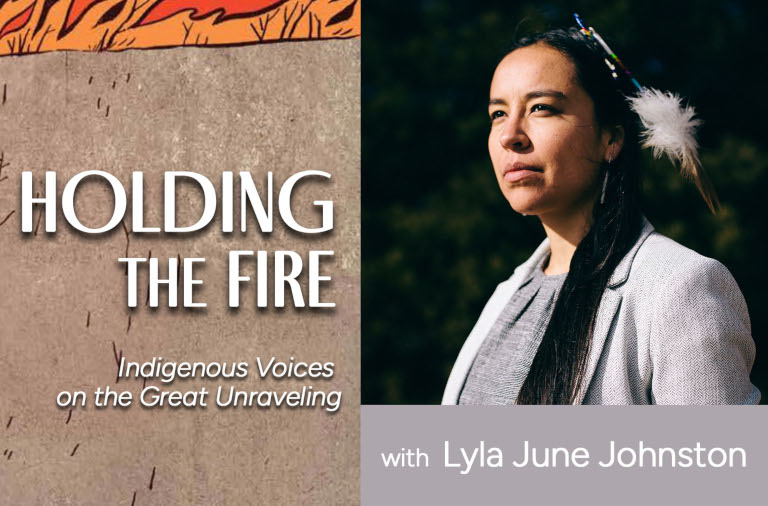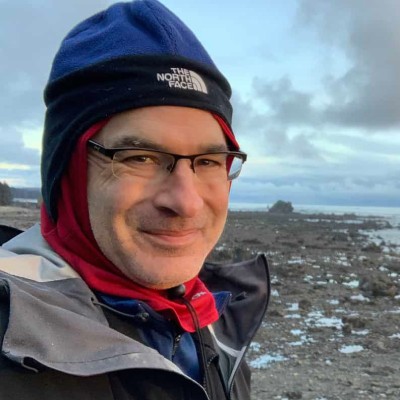How is it possible to attain and maintain perspective on the polycrisis? The march of bad news can feel relentless. Pain, suffering, and death seem to be on display everywhere you look, and there’s a palpable sense that conditions will continue to worsen.
If I could dream up a person to help me walk through these times, I would conjure an Indigenous person with a degree in environmental anthropology, ideally with honors, maybe from a prestigious institution like Stanford University. The perspective that person could share would be so valuable. Better yet, what if they also had a degree in American Indian education, with distinction, from the University of New Mexico?
Fortunately, I didn’t have to dream up this person, as my friend Stan Rushworth and I had already interviewed her for our book.
Here’s a taste of Lyla June’s perspective on our current predicament:
The polycrisis, and the convergence of crises in the collapse that we are learning about and experiencing—that crisis happened a long time ago. Actually, it’s manifesting now. But this crisis has been going on since 1492, right? For example, are we reaping what we’ve sown, you know, maybe the collapse is fruiting now? But didn’t we plant it a long time ago? And why are we so shocked that this is happening? We’ve been saying this for centuries. It’s almost like Creator was giving us nine lives, but it’s like we were acting a fool. And he was patient and said, “Okay, well, let me give you another chance.” And we did it again and again and again, kept brutalizing each other, kept brutalizing the Earth, and the Earth can only take so much. I mean, the fact that she’s even lasted this long, is incredible, with the amount of brutality and the amount of abuse, but she’s very resilient. She can actually absorb a lot of abuse; she can handle a lot of insanity. But only to a certain point, and at a certain point, we can’t go on like this.
And so in that sense, to me, the collapse is almost overdue, like the crisis started a long time ago. And if this is what it takes to sit our butts down and be like, “No, you cannot do this anymore. Period, find another way. And if you don’t, I’m gonna force you to.” If that’s what it takes, then so be it, because we’ve been having a ball just being extremely disrespectful to her and to each other, and with no consequences whatsoever. And so, in that sense, it’s not such a radical reframing at all. It’s almost a no-brainer (what did we expect?) extracting her, treating her like a slave, treating the soil like it’s just here for our benefit.
Even though I’m lucky enough to call her my friend, I still feel fortunate that I got to sit down with Lyla June for this interview, where we discussed rebirth, consequences of our actions, reframing collapse, the creation of new paradigms, the Lakota view of selfishness as a mental illness, the gardening of our culture, healing, and ultimately, love.
I trust you’ll find this conversation as mind and heart opening as I did.
About Lyla June Johnston
Dr. Lyla June Johnston, who is of Navajo, Cheyenne, and European lineages, recently received her PhD from the University of Alaska Fairbanks’ Indigenous Studies Program, with a focus on Indigenous land stewardship. She also has a degree in environmental anthropology, with honors, from Stanford University, and a degree in American Indian education, with distinction, from the University of New Mexico. She has brilliantly woven her knowledge into her public speaking and multigenre art, including prayer, hip-hop, poetry, and acoustic music, while inspiring international audiences towards personal, collective, and ecological healing.






